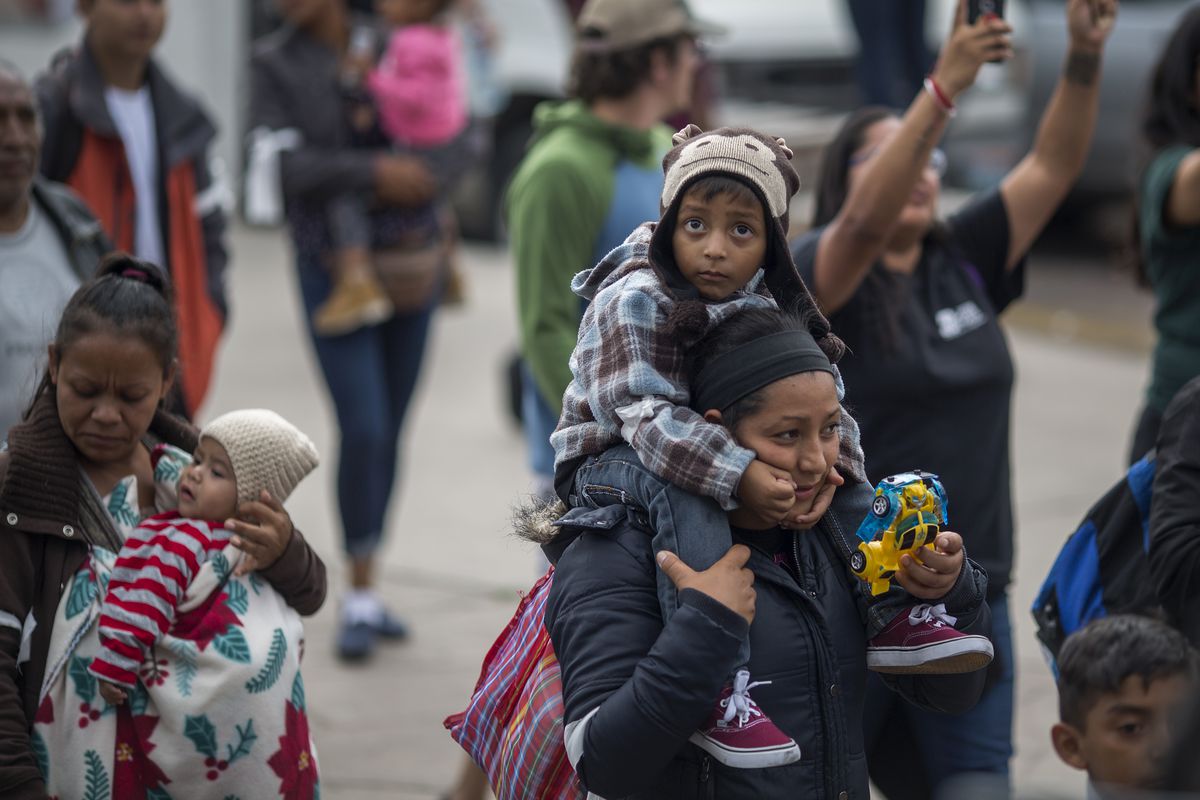Trump Deters Migrants with Military Threat
October 19, 2018 | Expert Insights

2,000 Honduran Migrants have been making their way north through Guatemala, and have tried to cross into Mexico. Some believe their final destination is the United States. U.S President Donald Trump has said he would cut aid to Honduras and deploy the military to close the border with Mexico if the migrant caravan is not halted.
Background
Honduras is a North American country to the south of the United States and Mexico. Since a coup in 2009 destabilised their democracy, the country has been in a near-constant state of crisis. In 1999, it was devastated by Hurricane Mitch; in response, the US Department of Homeland Security granted migrants from Honduras Temporary Protected Status for an indefinite period. As part of a crackdown on immigration, the Trump administration ended TPS for the 57,000 Hondurans living in the United States this year, a move that was protested because the country has not fully recovered from the hurricane and is now plagued by violence, political instability and even attacks from security forces.
Tens of thousands of Hondurans and other Central Americans have migrated north in recent years, fleeing rampant violence and poverty. Some have occasionally chosen to move in ‘caravans’, large, semi-coordinated groups, whose size offer participants some degree of security against the many perils that lurk on the migrant trail, including muggings, extortion and human trafficking. Such caravans have been almost an annual event for years and have garnered little international attention.
Analysis
A migrant caravan that originated as 1500 people leaving the violent city of San Pedro Sula in Honduras has now swelled to 4000 people from El Salvador, Guatemala and Honduras who have reached Guatemala’s border with Mexico, as of 19 October. On 15 October Honduran officials, who had limited ability to halt the large migrant group as it had already left the country, called on the immigrants to return home, as President Trump threatened to withhold US aid if the country’s leaders fail to stop the caravan. The $65 million the administration had proposed for Honduras in 2019 amounts to about 1.5 percent of the country’s total annual revenue.
Trump made a similar threat to cut off aid to Honduras over another caravan of migrants earlier this year. Then, the Mexican government allowed hundreds of migrants, mainly Hondurans, to reach the US border, infuriating Trump, who initiated the family separation policy soon after. It was also at that time that President Trump deployed National Guard troops along the border and threatened to rip up the North American Free Trade Agreement. The latest caravan is much larger, and hundreds more are preparing to leave Honduras in coming days. In Mexico, federal police, soldiers and immigration agents were deployed to the southern border ahead of the caravan’s expected arrival. Trump has threatened to close the US border with Mexico if they fail to contain and repatriate the migrants before they reach the north of Mexico. His administration welcomed a Mexican government plan to work with the United Nations refugee agency to deal with the caravan before they can make their way to the U.S-Mexico border.
Trump has portrayed the caravan of migrants, which includes many families traveling with children and fleeing poverty or gang violence, as a criminal threat to the United States, in league with the Democrats. This rhetoric has been adopted by many Republicans in the run up to November’s mid term elections, and for good reason. A recent poll by the Pew Research Center found that among voters who support a Republican candidate for Congress, 75% called illegal immigration a “very big” problem, making it the highest-ranked national problem for GOP voters. Only 19% of democrat voters rated illegal immigration a very big problem.
While the political gerrymandering is inevitable so close to Senate elections, the cost might not be worth the political pay off. Many experts on refugees believe that cutting aid to Honduras will only exacerbate the migrant crisis in future, since the migrants are primarily driven by conditions in their home countries, not U.S. policy. The Obama Administration responded to a 2014 surge of unaccompanied minors at the southern with face-to-face diplomacy with leaders from Central America and a $750 million worth of direct aid. In June, former Vice President Joe Biden called on the Trump Administration to try aid again. “This migration will only continue unless we keep up the pressure and provide the support to make the Northern Triangle of Central America a prosperous and secure place to call home,” he said.
Assessment
Our assessment is that policy on Migrants entering the United States is likely to remain inflexible until after the mid-term elections, and we expect both parties to stay on the safe side and keep immigration strict for the coming two years. It is possible that international pressure, or even incentives in the form of foreign aid, could be useful in influencing policy in the migrant’s countries of origin in the long run. We believe the humanitarian question deserves as much consideration as the political issues surrounding the migration crisis.








Comments